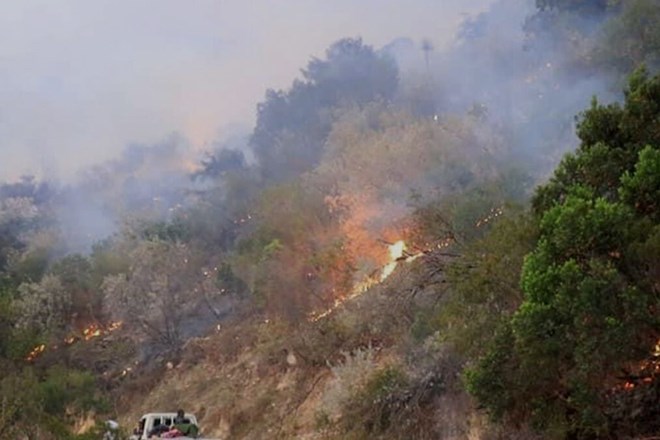by Khadra Yasien Ahmed
Saturday July 9, 2022

Wildfire destroying Gaacidh forest in Sanaag region, Northern Somalia
The wildfire in the state of Sanaag this week highlights a multidimensional environmental crisis that Somalia is in the forefront of. The immense impact of global climate changes affects the poorest parts of the world, and Somalia is no exception.
A spike in deforestation, desertification and production of charcoal are the leading reasons for Somalia’s’ crippling climate changes. This is currently driving millions of people in search for water and shade and resulting in the worst drought in 40 years. High temperatures, floods and droughts in cycles is a testimony that climate change has made its permanent mark on Somali soil. Increase in average temperature is not only literally killing the soil, but it is also wreaking havoc on human health- making access to food, water, and arable land a scarcity.
The Lancet countdown on health and climate change (2020) underscores that “climate change is the greatest global health threat facing the world in the 21st century." The disruption of food production and increase in food, water and vector-borne diseases will pose the greatest health challenge for the people of Somalia and will threaten future generations directly and indirectly. Climate refugees will within few years be on the rise in addition to the former IDPs- displaced by former crisis.
In the aftermath of the fire officials have acknowledged the lack of support and aid to the state of Sanaag. However, it is legitimate to question whether political turmoil and political sensitivity is putting life and health at risk in Sanaag. Matters will get worse before they get better. Hence, it’s time for Somali politicians to act because the future consequences are enormous- both for the environment and the health of the people.
Parts of Somalia is about to become unlivable. Will the government do more to assist the places and people that are worst affected by climate changes?
Khadra Yasien Ahmed
PhD-candidate, UIB
[email protected]